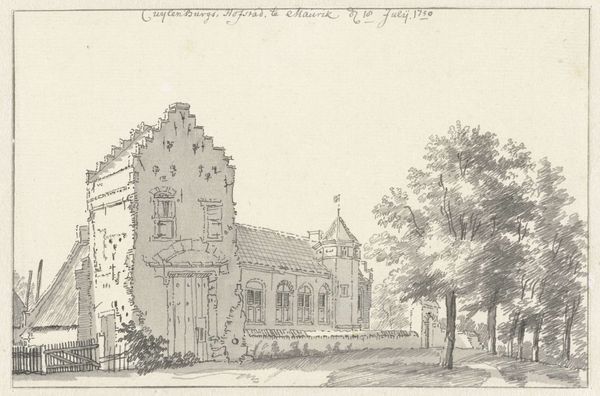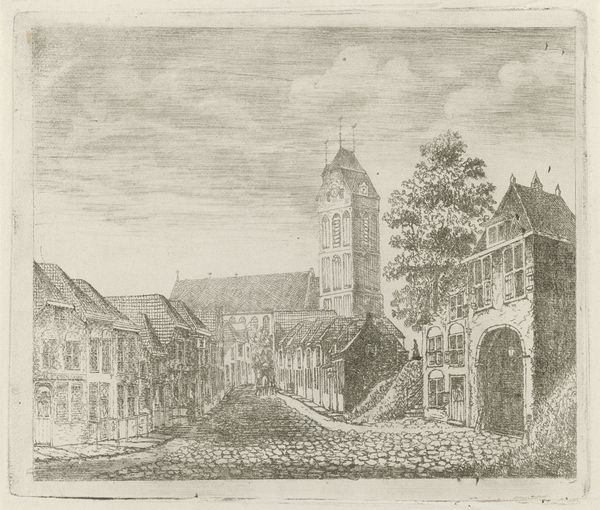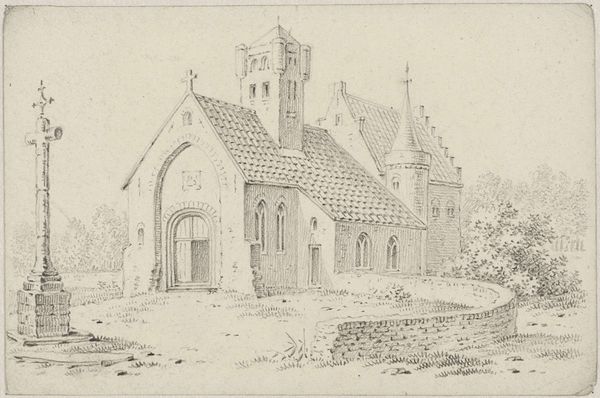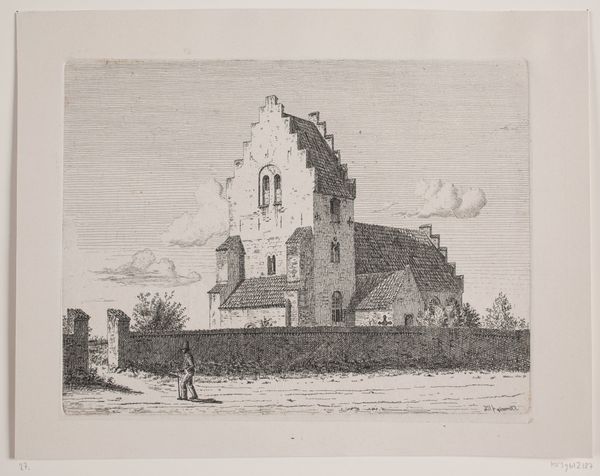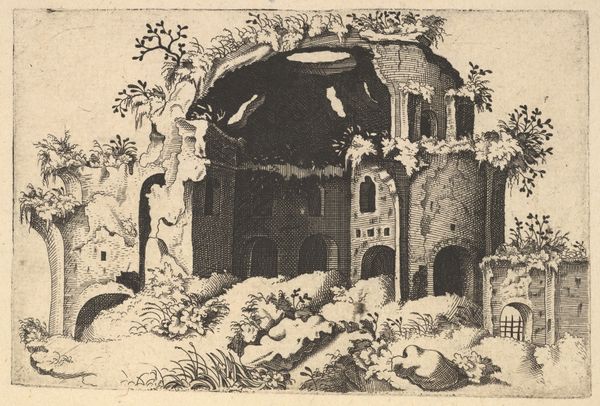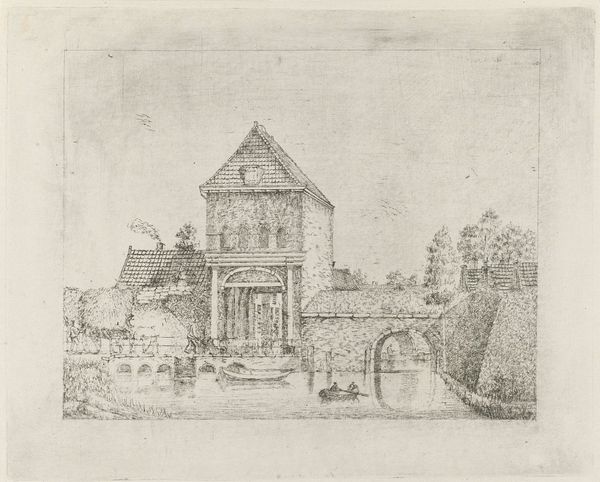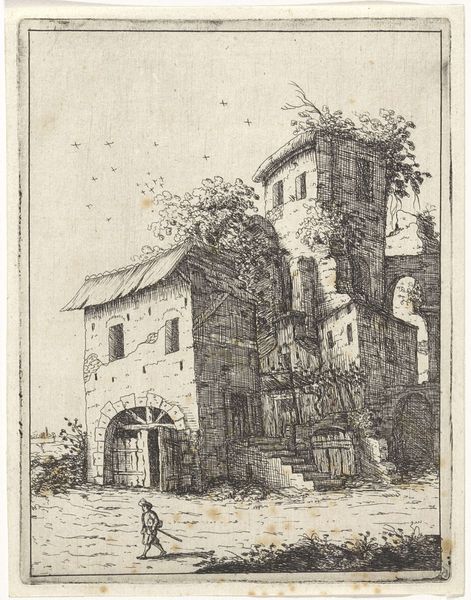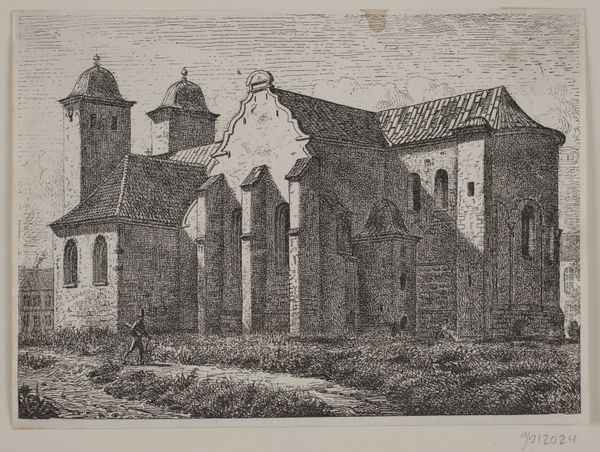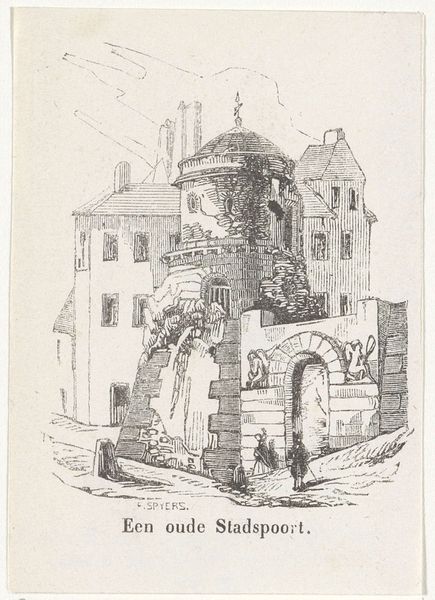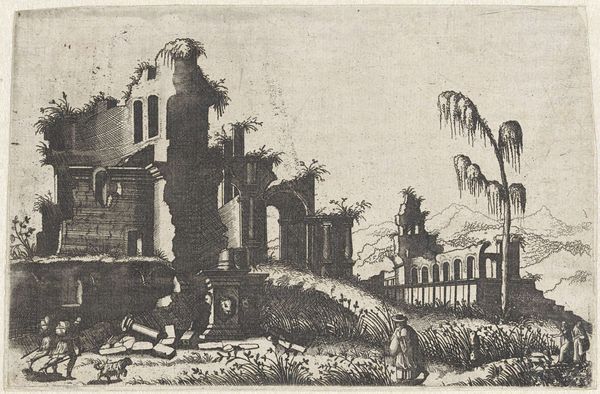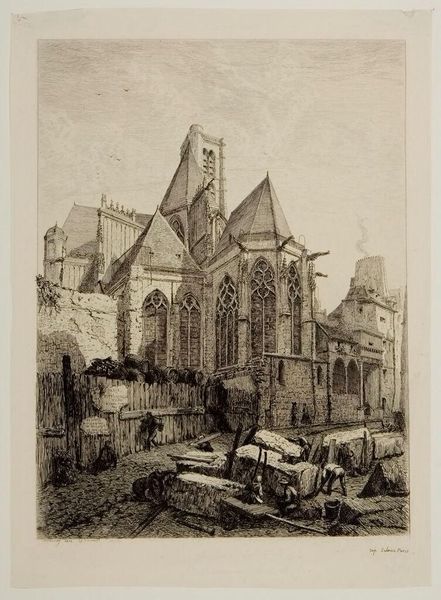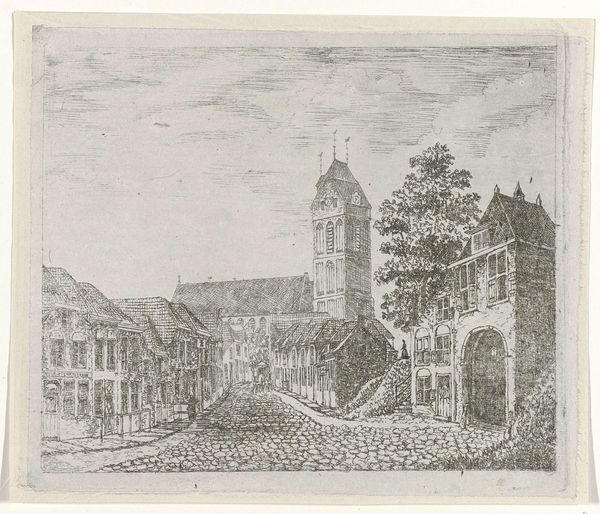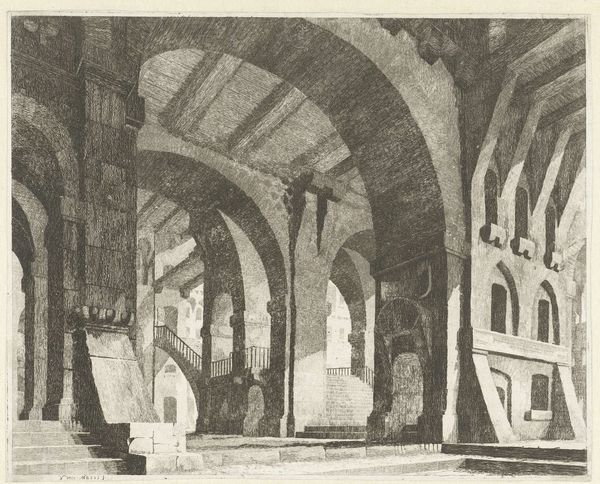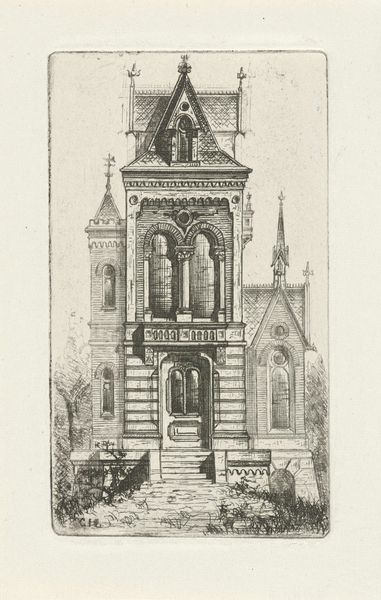
#
aged paper
#
toned paper
#
quirky sketch
#
pencil sketch
#
old engraving style
#
sketch book
#
personal sketchbook
#
pen-ink sketch
#
sketchbook drawing
#
sketchbook art
Dimensions: height 80 mm, width 121 mm
Copyright: Rijks Museum: Open Domain
Curator: Oh, this gives me goosebumps. It's Lambertus Suavius' "Ruin with Pyramidical Tower," dating back to around 1560. Editor: A wonderfully desolate feeling! Immediately, the jagged lines and crumbling architecture tell a story of decay. You can almost smell the damp earth. Curator: Yes, Suavius definitely captured that melancholy beauty in decay. This engraving showcases his intricate detail—notice how he uses hatching and cross-hatching to build up the tonal depth. The pyramidical structure is odd but imposing. Editor: Indeed. And it's not just the detail, but the very composition. The stark contrast between the geometric tower and the organic decay creates a visual tension that holds your gaze. Do you think the tower itself serves some semiotic function beyond just architectural representation? Curator: Absolutely. Pyramids often symbolize eternity, strength, or even resurrection. Placed amid these ruins, it's as if Suavius is hinting at the ephemeral nature of even the most enduring structures. Almost mocking our human attempts at permanence. Editor: Hmm, I’d propose, the contrast also reflects a dialectic of classical order and gothic dissolution. This suggests a narrative or perhaps a veiled critique of some societal shift in the late Renaissance. Curator: A narrative, indeed. And what kind of narrative does it suggest to you? It feels almost dreamlike. What tales and travels might Lambertus Suavius brought back to inform this particular image? I'd wager a bit of Piranesi might be peeking around the corner. Editor: It speaks to cycles – construction, destruction, rebirth. A poignant reflection on how even the grandest of civilizations can be reduced to picturesque ruins, providing a stark memento mori for the viewer. It forces one to question how one will be viewed after one passes, eh? Curator: It’s beautiful to see our ruins today as those who came before saw them. Time is a wondrous thing. Thanks so much for speaking with me. Editor: Likewise. This was deeply insightful and reflective, so many levels of dialogue from composition to human construction... I do believe it gave us much to consider today!
Comments
No comments
Be the first to comment and join the conversation on the ultimate creative platform.
